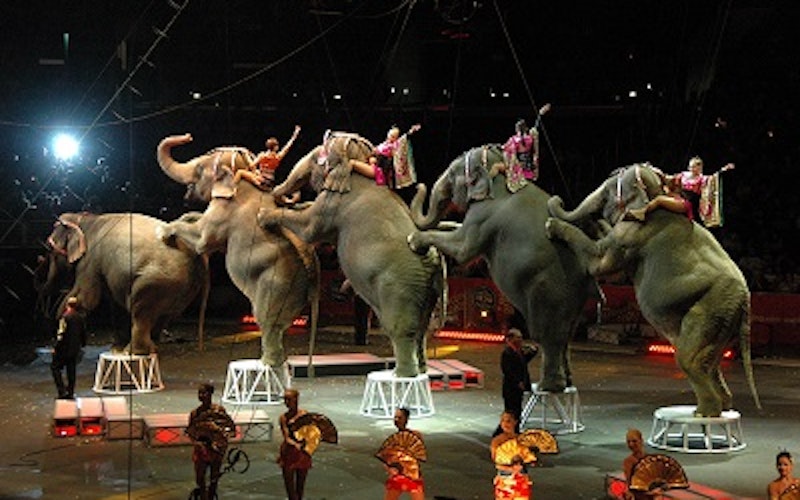
Culture At Large
Ringling Bros., elephants and serving as creation’s stewards
The Ringling Bros. and Barnum & Bailey circus was a regular part of my childhood. I don’t remember feeling too strongly about the use of elephants in the show either way. To be honest, I was more into the tigers (although the elephants certainly ranked higher than the clowns).
Things look differently through adult eyes, however, which is how I’ve experienced the Ringling Bros. circus in recent years. My grandparents – bless their hearts – carried on the tradition by taking four generations, including my own kids, to the show a few times. It was a nostalgic family outing and my children enjoyed it, but something else was in the air as the elephants shuffled through their expected routines.
Others have been sensing it too, which is why Ringling Bros. has been the target of frequent criticism over their treatment of animals, particularly the elephants. After picketing, lawsuits and a $270,000 fine from the United States Department of Agriculture for violations of the Animal Welfare Act, Ringling Bros. announced today that it would be phasing out the use of elephants in its shows.
This should feel right to any Christian who is serious about stewardship and creation care.
This should feel right to any Christian who is serious about stewardship and creation care. Here at TC, we’ve considered the cultural mandate of Genesis in many contexts, from the future of zoos to the ownership of exotic animals. Perhaps the piece most applicable to the Ringling Bros. news is Rolf Bouma’s appraisal of SeaWorld, which has received similar scrutiny in relation to its orcas.
Though Christians can debate exactly how the cultural mandate might apply in these cases and others, we can all agree with theologian N.T. Wright that Genesis 1 and 2 “certainly don’t envisage humans tyrannizing creation.” Writing further in his book After You Believe, Wright says,
A garden is what we have here in Genesis, a fruitful and richly varied landscape with the humans commanded to look after it, to make it fruitful and (while they’re at it) to give names to the animals. There’s no suggestion that the “reign” in question is anything other than benign.
Still, I don’t think we need to be smug or self-righteous about Ringling Bros.’ decision, even if it validates convictions we’ve personally held for quite some time. Our cultural understanding of what is “benign” and what is “tyrannizing” when it comes to the treatment of animals has thankfully evolved, especially as science continues to explore things such as animal emotion. We used to watch circus elephants through the eyes of children; now we’re seeing it through the eyes of discerning adults.
Good creation stewardship should be like that – coming to see God’s world not from our often infantile or selfish perspective, but from the loving vantage point of its Creator. In a sense, we’re learning as we go. Wright is helpful here, too, because he describes the cultural mandate as an ongoing affair:
Creation, it seems, was not a tableau, a static scene. It was designed as a project, created in order to go somewhere. The Creator has a future in mind for it; and Human – this strange creature, full of mystery and glory – is the means by which the creator is going to take his project forward. The garden, and all the living creatures, plants and animals within it, are designed to become what they were meant to be through the work of God’s image-bearing creatures in their midst.
So we keep struggling then, especially in the shadow of the Fall, to fulfill this project of God’s - or at the very least to negate those broken human actions that actively work against it. Which is why the grown-up me counts the reversal on the part of Ringling Bros. as a victory.
Topics: Culture At Large, Science & Technology, Environment, Arts & Leisure, Entertainment, Theology & The Church, Theology